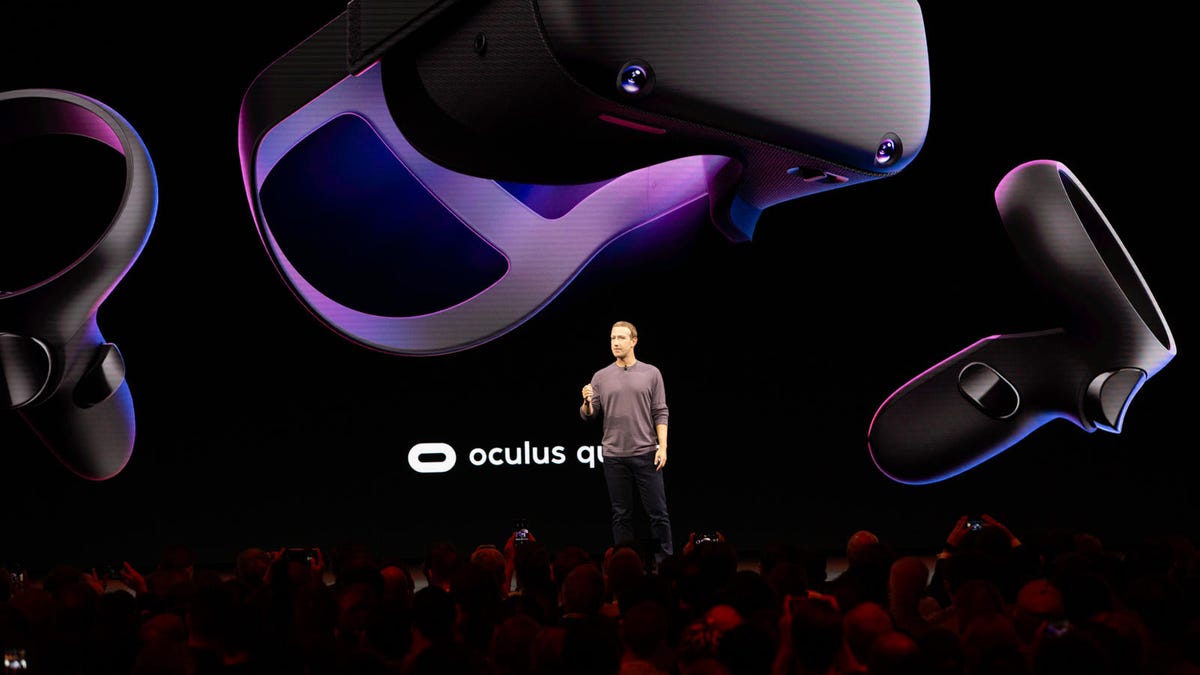Facebook's Oculus users have spent $100 million on VR content
The social network pushes forward with its VR efforts.

Facebook CEO Mark Zuckerberg delivers the keynote at the VR developer conference Oculus Connect.
Facebook is still betting that virtual reality will be the next big computing platform, and part of that plan involves getting developers to create more content to attract more users.
"We need to build a lot of technology that's going to help advance and deliver this feeling of presence. The second thing that we need to do is build an ecosystem of all the experiences that needs to be delivered here," Facebook CEO Mark Zuckerberg said at Oculus Connect, its sixth annual virtual reality conference that kicked off at the San Jose McEnery Convention Center on Wednesday.
Users have spent more than $100 million on Oculus content, he said.
Zuckerberg also unveiled hand tracking for the Oculus Quest and a way for users to access content from the higher-end Rift.
Facebook purchased Oculus in 2014 for more than $2 billion. The social network envisions a future in which people will share important moments like their baby's first steps in a way that makes it feel like you're there in person.
But Facebook's efforts to make VR mainstream have been bumpy. Oculus has faced shipping delays of its VR headsets, accusations of intellectual property theft from Zenimax, the ousting of founder Palmer Luckey after revelations surfaced he donated to a pro-Trump group and a string of executive departures. Then there are all the data privacy concerns surrounding the world's largest social network that have heightened scrutiny from lawmakers and regulators around the world.
To get VR headsets into the hands of more people, Facebook's Oculus has been giving users cheaper options and trying to make the headsets easier to use. The VR company has released a series of headsets, including the lower-end $199 Oculus Go and the higher-end $399 Oculus Quest, that don't require users to connect the device to a computer. The Oculus Rift S is also $399 but needs to be linked to a high-powered computer.
The company has also been partnering with creators to release more content in VR, including games that let you explore the world of Star Wars' Darth Vader, slash blocks representing musical beats or feel like you're in the animated show Rick and Morty. You can also watch Netflix shows and YouTube videos in VR. The company is also building a new social VR experience called Horizon.
Oculus hasn't released user or sales numbers. Zuckerberg has said he wants to get a billion people into virtual reality.

